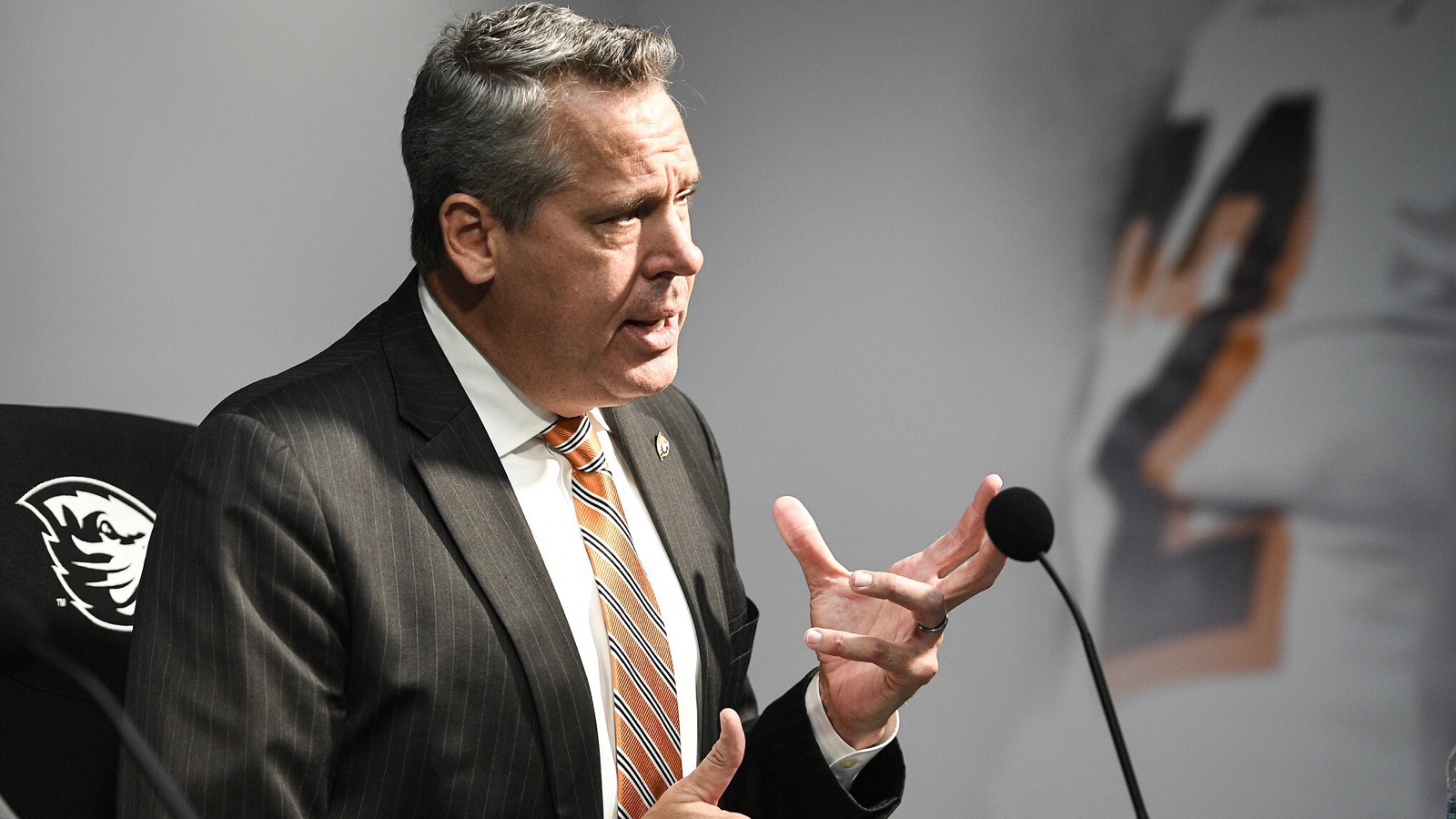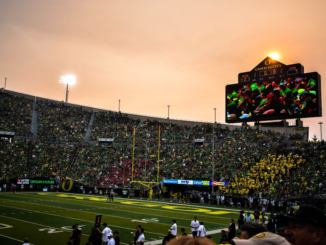
As July 1 approaches, the sports world is slowly, but surely, emerging from the self-imposed shutdown necessitated by the coronavirus outbreak in March. It was three months to the date on Thursday when Rudy Gobert was confirmed positive before a Jazz-Thunder game, and the dominoes of sports shutdowns began.
Only now, in mid-June, are some sports like NASCAR and the PGA back in action, while the NBA and NHL are planning for late-July returns to the hardwood and ice.
The wild card remains football, both at the NFL and collegiate level. While the NFL and NCAA are hopeful to return for their regular seasons in the fall, with the playing of games and the accompanying economic drivers, including sports betting on NCAAF and NFL, there are no guarantees, especially with fears of a second wave of COVID-19 menacing on the horizon.
For schools like Oregon State, even if college football does return on-schedule, the new realities of life under the threat of coronavirus will be difficult to navigate.
The date of July 1 is hardly arbitrary for college institutions: It is the date for most athletic programs that the 2020-21 budget year begins. And as OSU athletic director Scott Barnes said to OregonLive recently, the uncertainty about how many games will be played and when, or whether a 2020 season will be played at all, has far-reaching implications for the athletic department as a whole.
The Beavers play in a 45,000-seat stadium. If forced because of social distancing to only allow 50% capacity or less could result in major cuts to Oregon State’s 2020-21 athletic budget, which currently sits at $84 million. As is the case at Division I schools nationwide, it all hinges on football, which generates about 75 percent of the department’s revenue.
“At Oregon State that number, if it’s is $8 (million) or 10 or 12, is more significant, more dramatic for us because we have a smaller budget than most,” Barnes said. “The measures we take to mitigate those issues are going to be deeper and more severe.”
Already, schools are cutting sports programs in wake of the damage already done by the coronavirus, which wiped out high-profile – and profitable – events like the NCAA basketball tournaments and the entire schedule of spring sports, including the baseball and softball World Series.
But the cancellations in March, April and May would be dwarfed by the cancellation of football season – an extinction-level event for many athletic departments. According to ESPN, the cancellation of the 2020 football season would result in a $4 billion loss.
Already, several conferences and individual schools have put in place austerity measures to compensate for losses in revenue due to the coronavirus, in many cases by eliminating entire teams.
The Mid-American Conference plans to eliminate conference tournaments in eight sports; Cincinnati dropped its men’s soccer program; Old Dominion cut wrestling; Furman shut down baseball and men’s lacrosse; Bowling Green cut baseball; Central Michigan terminated men’s track and field; and Akron announced it is eliminating men’s cross country, men’s golf and women’s tennis.
But these are merely band-aids, where the loss of football would act as the severing of a critical artery.
Patrick Rishe, director of the sports business program at Washington University in St. Louis, told ESPN, that the 65 Power 5 schools, including Oregon and Oregon State, would lose more than $4 billion in football revenues, with at least $1.2 billion of that due to lost ticket revenue. Each Power 5 school would see at least an average loss of $62 million in football revenue, including at least $18.6 million in football ticket sales.
At Oregon State, Barnes said he is hopeful to play games at Reser Stadium at 50-percent capacity, which should accommodate season-ticket holders and students. Where it becomes tricky is if the school is only allowed to occupy a number as low as 25-percent capacity. Season-ticket holders would likely get first dibs, but some would be forced to accept credit for future seasons. Refunds would not be available.
“We’re going to get through this with all other measures,” Barnes said. “In saying that, if dramatic circumstances arise, then everything is put back on the table for us. But that is not a focus. Our focus is in other areas to help mitigate that.”



